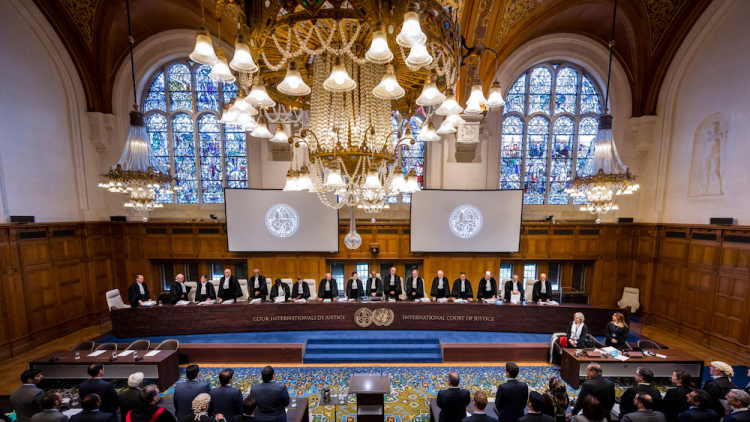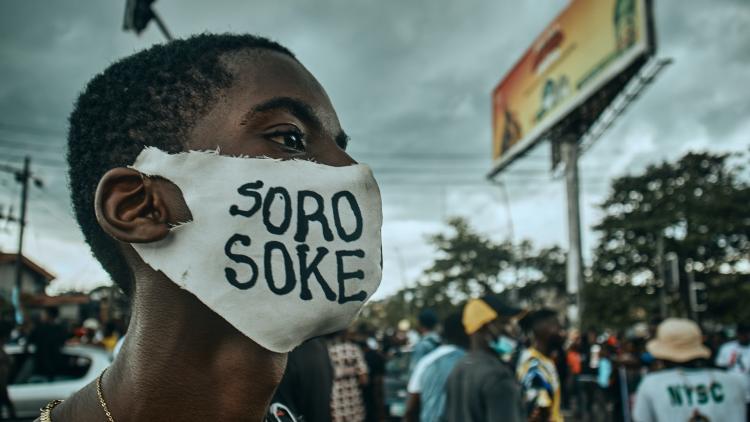Law Research Degree (PhD)


Key information
- Attendance mode
- Full-time or part-time
- Location
- Russell Square, College Buildings
- Fees
-
Home student fees (full-time): £4,860 per year
Home student fees (part-time): £2,430 per year
Overseas student fees (full-time): £22,490 per year
Overseas student fees (part-time): £11,245 per yearPlease note that fees go up each year.
See research fees for further details.
Course overview
The Law Research Degree (PhD) programme run by the School of Law accepts candidates for research work leading to a PhD.
The central feature of PhD work is the close relationship between the doctoral candidate and his or her supervisor, in which they meet regularly and consult closely. This relationship is supported and strengthened in various ways. Every doctoral candidate has an adjunct supervisor, another member of staff with a close interest in the candidate’s region and/or subfield of the discipline.
There is a departmental director of doctoral studies (research tutor) with overall responsibility for doctoral candidates who is available for a discussion of general problems. In addition there are a number of other activities which contribute to a doctoral candidate’s work and training. All incoming PhD candidates are required to take the School of Law’s Research Methods Seminar Programme in their first year.
Why study the Law Research Degrees (PhD) at SOAS?
- we are UK Top 20 and World Top 200 for Law (QS World University Rankings 2021)
- our research publications have been rated first in the UK - and our School of Law rated sixth in the UK - in the Research Excellence Framework (REF) 2021
- SOAS provides a unique environment and opportunity to engage with relevant issues taught by our expert staff who bring with them a wealth of knowledge and experience of working and teaching in the field. This includes posts such as United Nations Independent Expert on human rights in the Sudan, acting as advisors to national, regional and international bodies, and in multiple roles and affiliations with civil society organisations and actors
- doctoral candidates are encouraged to contribute to the research activities of the department Several of them are active in the various research centres run in the School of Law and are encouraged to participate in conferences and other projects organised by the department. Doctoral candidates are expected to participate in the School of Law PhD Colloquium which is held once a year. The colloquium, which is organised by a committee of PhD candidates, gives doctoral candidates the opportunity to present their research and progress to colleagues and staff
- many SOAS doctoral candidates spend some time doing field work in the regions of their research. The School, and other members of SOAS, through their various connections with individuals and institutions in the universities and governments of Asia and Africa, facilitate this work with personal contacts and introductions
- the School’s language training facilities are also available to doctoral candidates to develop their facility in an appropriate language for research purposes
Applicants must normally have an advanced degree equivalent in level and content to the School of Law’s LLM or MA.
Recent PhD theses in the School of Law
These include:
- Michele Tedeschini, Unsettling Human Rights Custom (2020)
- Oreva Olakpe, South-South Migrations in International Law: The Case Studies of Nigeria and China (2020)
- Birsha Ohdedar, The Human Right to Water, Climate Change and Justice: Analysing multiple interactions through a case study of India (2020)
- Mohammed Abdul Aziz, The Integration of Muslims in Britain: An account and analysis of the legal and non-legal equality and security initiatives during the New Labour years of 1997- 2010 (2019)
- Yuan Qiong Hu, Rethinking Patent Centric Biomedical Innovation: Towards an Alternative Conceptual Framework Building (2019)
- Lovleen Bhullar, Water pollution in India : environmental rights litigation as a solution (2018)
Selected published PhDs
These include:
- Al Khanif, Religious Minorities, Islam and the Law – International Human Rights and Islamic Law in Indonesia (Routledge, 2020). [PhD 2016]
- Rose Parfitt, The Process of International Legal Reproduction: Inequality, Historiography, Resistance (Cambridge University Press, 2019). [PhD 2010]
- Janan Al-Asady, Iraq’s Oil and Gas Industry – The Legal and Contractual Framework (Routledge, 2019). [PhD 2016]
- Jonathan Bashi Rudahindwa, Regional Developmentalism Through International Law: Establishing an African Economic Community (London: Routledge, 2018). [PhD 2016]
Structure
During the first year, candidates are required to attend the School of Law’s Postgraduate Research Training Seminar, whose purpose is to introduce them to the principal practical and methodological issues associated with postgraduate legal studies.
This course introduces candidates to both an array of methodologies, as well as different bodies of legal scholarship and theory. Candidates are also able to avail themselves of general seminars on research methodology offered by the SOAS Doctoral School.
By the beginning of the third term of the first year, candidates are required to hand in a draft Research Plan that is an integrated document based on the methodology paper, research paper, draft dissertation abstract, draft table of contents, draft bibliography and working schedule.
Upgrading
All doctoral candidates are first registered as MPhil candidates. The process of upgrading - that is, upgrading registration from MPhil to PhD - takes place at the end of the first year of study (or part-time equivalent) and involves all members of the Supervisory Committee in the assessment of the candidate's work to date.
Specifically, the potential of the work to be developed into a PhD thesis of University of London standard. It is based on the Research Plan and a presentation of that plan to the Supervisory Committee. Candidates who are not upgraded in accordance with this process will not be eligible to proceed to submission of a PhD thesis, although they may proceed to submit for an MPhil at the end of two years of full-time registration or part-time equivalent.
Doctoral students will be required to complete the Research Integrity Online Programme, as part of their upgrading requirement.
After year 1
After their first year, doctoral candidates must carefully plan their time so that they can finish their draft thesis well in time before the end of their third year of registration. The process followed by each doctoral candidate is guided by their research project.
This may include a period of field research if required by the nature of project undertaken. Doctoral candidates are encouraged to take part in the Law School's research activities and events, including the PhD Colloquium, activities organised by Research Centres, informal reading groups, and the Law School Research Seminar series.
Important notice
The information on the website reflects the intended programme structure against the given academic session. The modules are indicative options of the content students can expect and are/have been previously taught as part of these programmes. However, this information is published a long time in advance of enrolment and module content and availability is subject to change.
Teaching and learning
During the first year, candidates are required to attend the School of Law’s Postgraduate Research Training Seminar, whose purpose is to introduce them to the principal practical and methodological issues associated with postgraduate legal studies.
Knowledge
- familiarity with legal approaches to research will be developed through lectures, seminar discussions, compulsory reading assignments, and the dissertation
- an understanding of the philosophical, ethical and political issues at the heart of law research (as well as possible solutions to such problems) will also be developed through lectures, seminar discussions, compulsory reading assignments, and the dissertation
- critical comprehension of theoretical and empirical literature will be encouraged through substantive courses,compulsory reading assignments, lectures and seminars
Intellectual (thinking) skills
- planning and execution of an appropriate research design will be developed through independent projects, essays, and the dissertation
- understanding and utilization of appropriate research methods will be encouraged through independent projects (e.g. essays), oral presentations, and the dissertation
Subject-based practical skills
- the interpretation and critique of published research will be encouraged via compulsory reading assignments, synthetic/critical lectures, and regular seminar discussions, as well as long essays and the dissertation
Transferable skills
- an awareness of research resources available to social scientists will be provided via 1) the provision of detailed reading lists, which include, where appropriate, reference to on-line materials and 2) compulsory reading
- assignments which familiarize students with secondary sources
- an ability to write up and present the findings of analysis will be encouraged via long essays, coursework, exams, and the dissertation
SOAS Library
SOAS Library is one of the world's most important academic libraries for the study of Africa, Asia and the Middle East, attracting scholars from all over the world. The Library houses over 1.2 million volumes, together with significant archival holdings, special collections and a growing network of electronic resources.
Scholarships
Fees and funding
Fees for 2023/24 entrants per academic year
| Home students | Overseas students | |
|---|---|---|
| Full-time | £4,860 | £21,630 |
| Part-time | £2,430 | £10,815 |
Please note that fees go up each year.
See research fees for further details.
Employment
SOAS Law graduates leave SOAS as civic minded and critically engaged individuals who can effectively contribute to their communities and societies. With a thorough understanding of the legal dimensions underlying many of our global challenges today, our Law students are valued by employers due to their analytical skills, specialist knowledge, and global perspective.
Careers
Recent School of Law SOAS graduates have been hired by organisations including:
- PwC LLP
- BLM Law
- BloombergNEF
- British Medical Association
- Clifford Chance
- DAC Beachcroft LLP
- Department for Work and Pensions
- EY
- HM Treasury
- Latham & Watkins
- Legal Cheek
- Simpson Millar Solicitors
- The Economist
- Travers Smith
- Vodafone
- World Cancer Research Fund
Find out about our Careers Service







